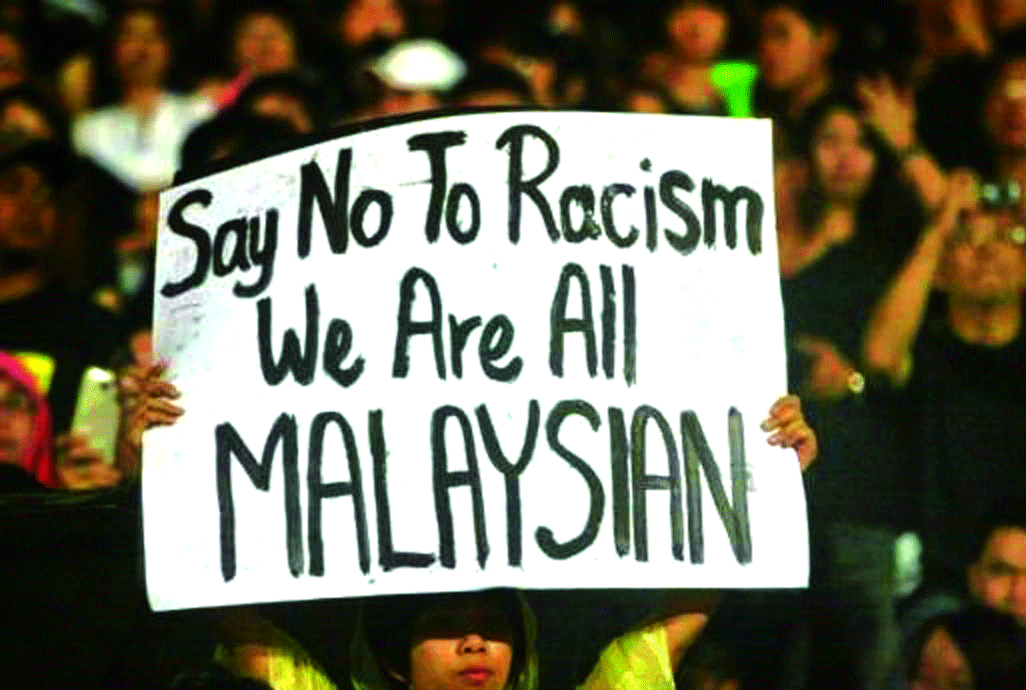Malaysia is once again slipping into its dirty racial politics. The United Malays National Organisation (UMNO) Government of Najib Rajak recently introduced a series of racially discriminatory policies to promote the interests of the majority race — the “Malays”.
One of such policies is directed to build a cluster of grand shopping plazas known as “Mara Digital”. What is pushing the Government to extend prototypes of such ventures to other major cities of Malaysia is its ability to create a vote bank. Interestingly, these measures are being largely fed by subsidies received from the Government.
This reminds the international community of the country’s historic “New Economic Policy (NEP)”, known in Malay as “Desar Ekonomi Baru (DEB)”, which was unveiled in 1971 by its National Operation Council. The NEP came after a brutal race riot that took the lives of majority of the Chinese residents in the capital, Kuala lumpur, on May 13, 1969.
The NEP had two important goals: a) to attenuate absolute poverty across all races, and b) to boost the prospects of Malays, whose average income at that time was roughly half of that of their Chinese compatriots. Thus, the stated goals of the NEP itself have the germs of divisive politics.
But then, can we solely blame Najib for such populist racial policies packed with huge financial benefitsIJ Not really, as he has inherited it both from his party and his predecessors. Such policies indeed have shaped the Malaysian society for the last half a century. Moreover, he is also gearing up for an election that may possibly be held by December; and with such Malay-centric policies, particularly appeasing the party hardliners, he can once again bring the UMNO to power.
Ironically, the same Najib Government, in a paper published in 2010, had admitted that these kinds of policies had led to the creation of “entitlement culture and rentier behaviour” among the indigenous Malays. And the Najib Government in turn wanted to alter such race-based policies for action-intended fresh schemes to raise the income levels of ordinary Malaysians, estimated to be over 40 per cent of the population in 2010. As this was aimed at all-round development of the common people, regardless of their ethnicity, the same Government promoting “Mara Digital” smacks of a hidden agenda of the UMNO.
In fact, the UMNO, from the very beginning, has been advocating affirmative action as it woos more voters to the party. Besides, Malays are over half of the population of the country. Thus, Najib’s latest action definitely carries the original party propaganda through which one could visualise the inherent conflict that has already been enmeshed in Malaysia’s sharply divided society on strict ethnic lines.
What lies behind such schemesIJ Initially these schemes were designed and deemed to be essential for improving living standards of a large group of Malays. Affirmative action began in Malaysia in the 1950s immediately after the withdrawal of the British, who had selectively allowed the Indian and the Chinese merchants and the workers to the cities, but ensured that the local Malays are engaged in the rural farmlands.
The NEP was introduced largely to address the uplift of the Malays and to move them ahead of the dominant ethnic minorities such as the Indians and the Chinese. Initially, the NEP was believed to achieve its targets within 20 years of its implementation for its “bumiputras” (sons of the soil). Hence, some of them were pushed through popular legislative actions. It must be noted that since the coming of the NEP, Malaysia has travelled long on the road to modernisation and narrowed down the gap between the bumiputras and the ethnic population. later, the NEP was ostensibly replaced with the National Development Policy (1991-2000) and then again with the National Vision Policy (2001-2010).
However, today such racial policies, many fear, simply benefit the wealthy sections of the Malay society. They have never been means-tested and hence the benefits are disproportionately accrued. Therefore, Najib’s brand new version of the NEP would probably not serve the genuine interests of the needy Malays.
In turn, the current tone and tenor of the affirmative action would whip up the racial tension in the country. The long journey from the NEP to the current avatar of it, as manifested by Najib, has exposed its loopholes that may polarise the country along the ethnic lines.
After nearly 50 years of the completion of the NEP, it can be firmly said that Malaysia has not improved the inter-ethnic relations between its majority Malays and the ethnic minorities such as the Chinese, Indians, etc. The specific socio-economic targets set forth by the NEP have largely been achieved, but these all could hardly strengthen the roots of national unity in the country.
In the race to retain both power and dominance of his party, the Najib Government is taking recourse to such racial policies that could redouble the claims of bumiputras over the scores of ethnic minorities. It seems he wants to pit “locals” against the “ethnic minorities”, probably to cover up the “1MDB Scandal” around him and his authoritarian policies since he came to power in 2009.
However, race-based policies may further embolden hardliners, supporters, fans and thugs of the UMNO in the name of uplifting the disadvantaged Malays. Hope Najib knows well that a group of “selected section of elites” will drive away the grand benefits supposed to accrue from the “Mara Digital” like the other NEPs in the past.
(The writer teaches Sociology at OP Jindal Global University in Sonepat)
























